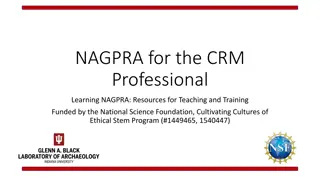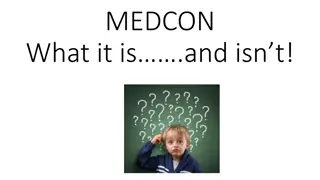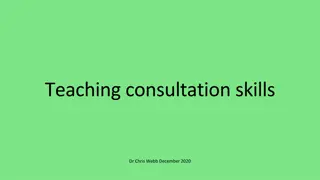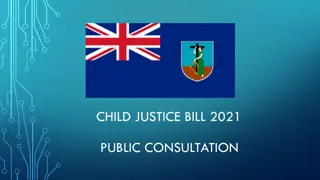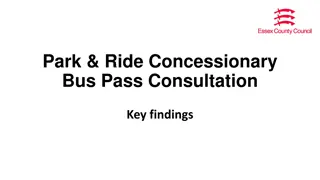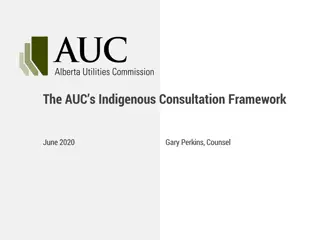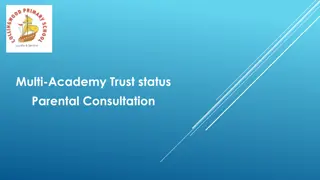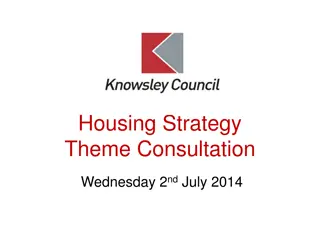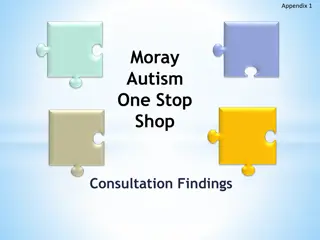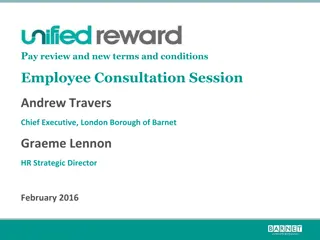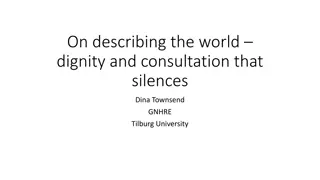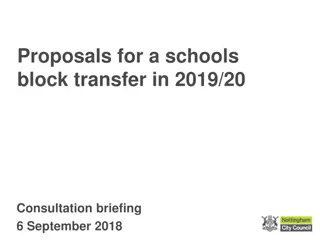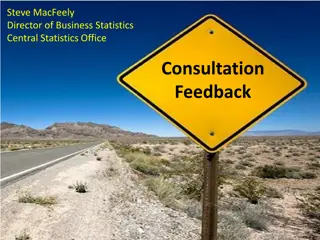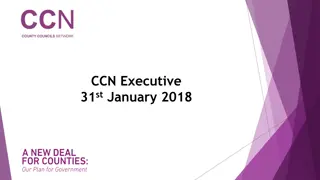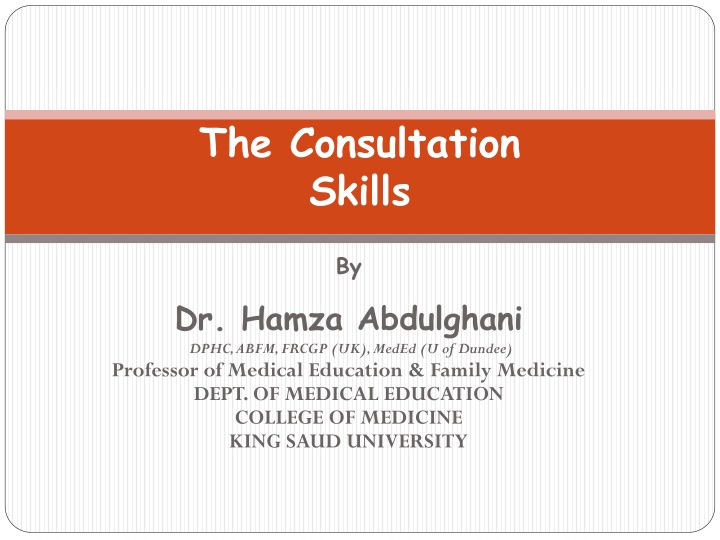
Enhancing Consultation Skills in Healthcare Setting
Explore the essential components of consultation skills in medical practice, discuss models of consultation, importance of good communication skills, and benefits such as improved diagnostic accuracy, patient understanding, treatment adherence, and more satisfying patient care experiences. Dive into a simulated clinical scenario to practice effective communication techniques.
Download Presentation

Please find below an Image/Link to download the presentation.
The content on the website is provided AS IS for your information and personal use only. It may not be sold, licensed, or shared on other websites without obtaining consent from the author. If you encounter any issues during the download, it is possible that the publisher has removed the file from their server.
You are allowed to download the files provided on this website for personal or commercial use, subject to the condition that they are used lawfully. All files are the property of their respective owners.
The content on the website is provided AS IS for your information and personal use only. It may not be sold, licensed, or shared on other websites without obtaining consent from the author.
E N D
Presentation Transcript
The Consultation Skills By Dr. Hamza Abdulghani DPHC, ABFM, FRCGP (UK), MedEd (U of Dundee) Professor of Medical Education & Family Medicine DEPT. OF MEDICAL EDUCATION COLLEGE OF MEDICINE KING SAUD UNIVERSITY
Objectives Define the Consultation Discuss the benefits of good Consultation skills Identify why & when pts Decide to consult Discuss the Model of consultation -Stott & Davis -Roger Neighbour -Pendleton Identify how we can improve consultation skills Summary Perform well in a simulated clinical situation (Role Play)
The Consultation& Communication Part-One Introduction ( a case) Components of Consultation skills Decision of consultation Model of consultation -Stott & Davis -Roger Neighbour -Pendleton Part-Two Preparation of second session
Yesterday One of the OSCE Case Yesterday One of the OSCE Case A 50-year old lady presented first time for general checkup. She was asked by her husband to visit doctor, as she has Celiberated he 50thbirth day. Nurse checked BP: BP: 152/102 mmHg today BMI: 29 TASKS for STUDENTS: 1. Take a history with a focus on relevant risk factors. 2. Provide appropriate advice about life style modification. 3. Tell the examiner which routine investigation you have to do?
Important information in Pt history Important information in Pt history Not known to have any chronic diseases Teacher at primary school, lots of work stress. She has sedentary life style, no exercise. Eats anything and every thing. No dietary control. Gained weight about four Kg over the last few months. Menopause at the age of 48 year. Mother is hypertensive past 10 years, and alive. Father died at the age of 52 with heart attack
Consultation Skills Communication Skills: Clinical skills: Examination Verbal e.g Non-verbal e.g Procedures
Benefits Good communication & Consultation skills : Diagnostic Accuracy Pts understanding & Information retention Increase adherence to treatment Patients adjust better psychologically Allow patients to share in the decision making. Pts are more satisfied with their care Greater job satisfaction and less work stress (Roter 1987, Betakis 1991, Stewart 1995)
Effect on Health Outcomes Reduction of anxiety. Reduction of psychological distress. Pain relief. Symptom resolution. Mood improvement. Reduction of high blood pressure. (Stewart 1995).
Effective Consultation Skills (Models)
DEFINITION?? The occasion when, a person who is ill, or believes himself to be ill, seeks the advice of a doctor whom he trust. (Wright &Macadam)
DEFINITION?? It is a goal-seeking activity in which the goals of one party may or may not be clear to other party. (Byrne & Long)
CONSULTATION IN PHC CONSULTATION IN PHC Vs Vs CONSULTATION IN HOSPITAL CONSULTATION IN HOSPITAL
CONSULTATION SKILLS Involve: * * * * Interviewing skills History taking skills Physical examination skills Problem-solving skills
Patient-Centered Care Patients as partners Involve them in decision making Enlist their sense of responsibility for their care Respect their individual values and concerns
What people do about their symptoms?
No action Self care only Self care plus GP visit GP visit only__________ Hospital __ 16% 63% 12% 8% 1% What people do about their symptoms??
WHY PTS. CONSULT THEIR DOCTORS?? Symptoms of illness perceived by patient Nature of symptoms Anxiety housing, environment stress Personality of patient, anxiety, Attempts to resolve anxiety Education, Family and community support Decision to consult Health beliefs, expectation of doctor, Accessibility (appointment system, receptionists, etc) Consultation Factors influencing the decision to consult a doctor
Case Jamila 55 years old Saudi female, presented with history of low back pain, irregular uterine bleeding and tiredness of four weeks duration. She was diagnosed earlier to have IBS. She claimed that she has files in many hospitals. She request that to be referred to specialist for further investigations of her problem What could be done for the patient?
Models of Consultation 1- Stott & Davis 3- Roger Neighbour 4- Pendleton
Stott and Davis Stott and Davis
A Management of presenting problem B Modification of help-seeking behaviors C D Management of continuing problems promotion Opportunistic health Patient Centered Consultation (Stott and Davis) (Stott and Davis)
NEIGHBOURS 5 CHECKPOINTS (Roger Neighbour The Inner Consultation ) 1. CONNECTING. 2. SUMMARISING. 3. HANDING OVER. 4. SAFETY NETTING. 5. HOUSEKEEPING.
PENDLETONS MODEL Seven checklist The define the reasons for the patient s attendance 1. Idea, concern & expectation 2. Time management 1.
PITFALLS in Communication
Blocking behavior Interrupting Offering advice and reassurance before the main problems have been identifiedl Lack of concern Attending to physical aspects only Switching the topic
Reasons for patients not disclosing problems Belief that nothing can be done Reluctance to burden the doctor Desire not to seem pathetic or ungrateful Worry that their fears of what is wrong with them will be confirmed Doctors' blocking
IMPROVING CONSULTATION SKILLS
IMPROVING CONSULTATION SKILLS Clinical reasoning & Problem Solving Constant Learning and Practice Feed Back: - Self monitoring/Peer review - Role play Audio-visual technique
The Conclusion 1.Consultation skills are learnt behavior. 2.For beginner a model to be kept in mind 3.The consultation should be a discussion and sharing of ideas between two experts. 4.Each consultation should be tailored to fit the different need of each patient. 5.Patient-centered consultation. Vs Doctor-centered consultation.


